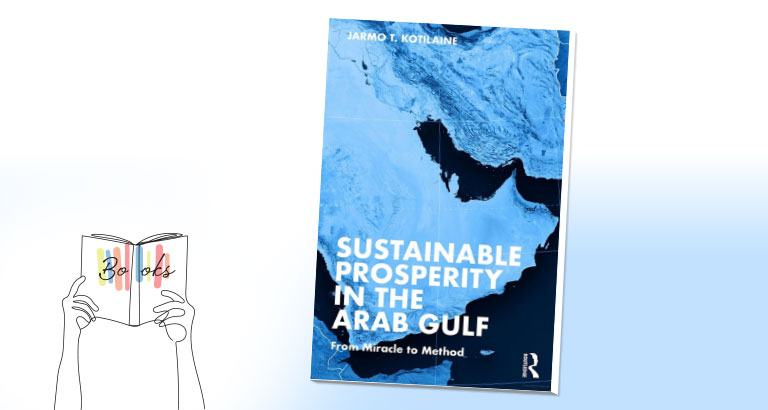
Sustainable Prosperity in the Arab Gulf: From Miracle to Method by Jarmo T. Kotilaine
Jarmo T. Kotilaine is one of the Kingdom’s greatest thinkers in the field of economics, acting as Chief Economic Advisor of the Bahrain Economic Development Board (EDB) since 2012. In his latest book, summarised below, he covers a forward-looking economic history of the GCC region and reviews its unlikely development journey from exceptionally challenging initial conditions into one of the wealthiest economic blocks in the world.
The Gulf region is exceptionally positioned to rise to great strategic importance in the emerging multipolar world order. Capitalising on its location in the embrace of the world’s two fastest-growing continents as well as its world class connective infrastructure and attractive lifestyle, the GCC has successfully positioned itself as a global hub with the ability to pivot between different geographies.
The book opens with an historical overview of the resource base, competitive advantages and strategic limitations of the Arabian Peninsula. A region characterised by an extremely harsh climate but a strategic location, it was able for centuries to sustain a small location population thanks to external trade and the revenues generated by pearl fishing.
The sudden collapse of pearling in the 1930s delivered an existential blow to the Gulf economy. However, the almost simultaneous oil discoveries starting in 1932 unexpectedly allowed the region to embark on one of most spectacular races to economic modernity ever documented. A population-poor region with minimal social infrastructure emerged as the lynchpin of the global energy markets and saw its population expand 15-fold.
The extraordinary speed of development created multiple imbalances that have proven extremely resistant to change. Attempts to reduce the dominance of oil through diversification were complicated by dependence on the income it generated for capital. The race to modernity pulled in a growing army of expatriate workers and experts. Private businesses developed a systemic dependency on low-cost foreign labour while willing locals found employment in the public sector. Efforts to create new mechanisms for pooling and allocating capital have been complicated by the relatively modest scale of non-sovereign institutional investors. This has perpetuated the vulnerability of the Gulf economy to the oil cycle.
The oil-driven development model of the past several decades has now largely exhausted itself. The global energy transition and diminishing returns to infrastructure investments underscore the urgency of a fundamental overhaul of the GCC development model. The formula for success must be underpinned by productivity-led growth.
The Gulf region is embarking on its paradigm shift at a challenging time, facing a multitude of economic and security risks both in the global and in the regional context. While success is by no means a foregone conclusion, the region boasts a long history of adaptation of extreme conditions. Moreover, it now commands significant assets that position it well for the challenges ahead.



